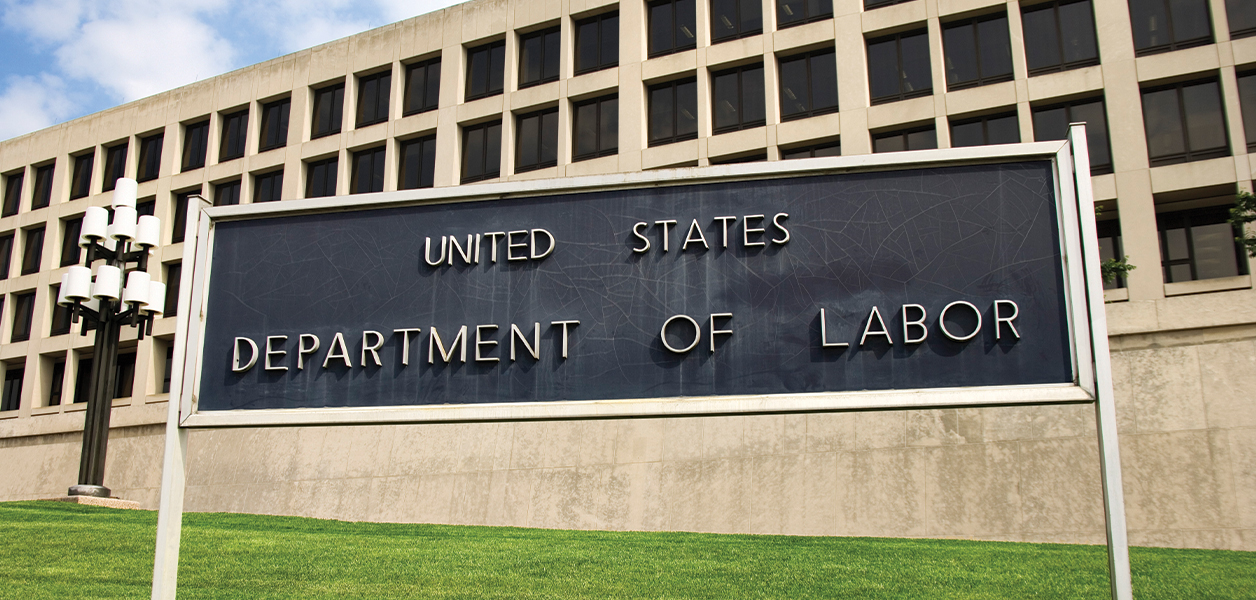Resolution to repeal OSHA employee representation rule
On May 16, Rep. Mary Miller (R-Ill.) introduced House Joint Resolution 147 to disapprove the Occupational Safety and Health Administration’s final rule to revise the process for determining who may act as an employee representative to accompany OSHA compliance officers during workplace inspections. Often referred to as the “Worker Walkaround Rule,” the regulation will allow employees to authorize a nonemployee from a third party as their representative if the compliance officer determines the third party is “reasonably necessary” to conduct an effective inspection. H.J. Res. 147, if approved by Congress and signed by the president, would repeal the final rule and bar OSHA from reissuing any substantially similar rule in the future. NRCA joined comments to OSHA raising member concerns regarding how the rule affects employers, but OSHA failed to address any of these concerns. NRCA joined with 57 industry associations in the Coalition for Workplace Safety in sending a letter of support for passage of H.J. Res. 147 to House lawmakers. The rule takes effect May 31.
IRS advises businesses to check tax returns for signs of incorrect Employee Retention Credit claims
Some marketers have misrepresented eligibility rules for the Employee Retention Credit, leading well-intentioned businesses to claim the credit when they do not qualify. The IRS released seven suspicious signs of an incorrect claim and is urging businesses to resolve an incorrect claim as needed. With IRS ERC compliance and auditing expanding, it is more important than ever for businesses to triple-check their claims and quickly pursue the withdrawal process if they need to ask the IRS not to process an ERC claim for any tax period that has not been paid yet.
The IRS states the following seven suspicious signs could indicate an incorrect claim:
- Too many quarters claimed. Some promoters urged employers to claim the ERC for all quarters the credit was available. Qualifying for all quarters is uncommon. Employers should carefully review their eligibility for each quarter.
- Government orders that do not qualify. Some promoters told employers they can claim the ERC if any government order was in place in their area, even if their operations were not affected or if they chose to suspend their business operations voluntarily. This is false. Some promoters also suggested an employer qualifies based on communications from OSHA. This is generally not true. Employers should review the frequently asked questions about the ERC regarding qualifying government orders for more information and helpful examples.
- Too many employees and wrong calculations. Employers should be cautious about claiming the ERC for all wages paid to every employee on their payroll. Employers need to meet certain rules for wages to be considered qualified wages, depending on the tax period. Employers should review all calculations to avoid overclaiming the credit. They should not use the same credit amount across multiple tax periods for each employee. For details about credit amounts, see the ERC 2020 vs. 2021 Comparison Chart.
- Supply chain issues. A supply chain disruption alone does not qualify an employer for the ERC. Employers must ensure their supplier’s government order meets the requirements. Employers should carefully review the rules regarding supply chain issues and examples in the 2023 legal memo about supply chain disruptions.
- Claims for too much of a tax period. It is possible, but uncommon, for an employer to qualify for the ERC for the entire calendar quarter if his or her business operations were fully or partially suspended because of a government order during a portion of a calendar quarter. A business in this situation can claim the ERC only for wages paid during the suspension period—not the whole quarter. Businesses should check their claim for overstated qualifying wages and keep payroll records that support their claim.
- Did not pay wages or did not exist during the eligibility period. Employers can only claim the ERC for tax periods when they paid wages to employees. Records available to the IRS show some businesses that claimed the ERC did not have any employees or claimed the credits for tax periods before the business existed.
- Promoter says there is nothing to lose. Businesses should be on high alert regarding any ERC promoter who urged them to claim the ERC because they “have nothing to lose.” Businesses that incorrectly claim the ERC risk repayment, penalties, interest, audit and other expenses.
Employer guidance regarding rule banning noncompete agreements
On April 23, the Federal Trade Commission approved a final rule to prohibit the use of noncompete agreements by employers for most employees. The agency argues the rule is needed because such clauses in employment contracts constitute an unfair method of competition under the Federal Trade Commission Act. Once implemented, existing noncompete agreements for most employees will no longer be enforceable; however, some existing agreements with senior executives will be allowed to remain in force under the rule, which will take effect Sept. 4. To help employers better understand the rule and how to ensure compliance, the agency has prepared a Business and Small Entity Compliance Guide. Also, the agency recorded a compliance webinar May 14.





